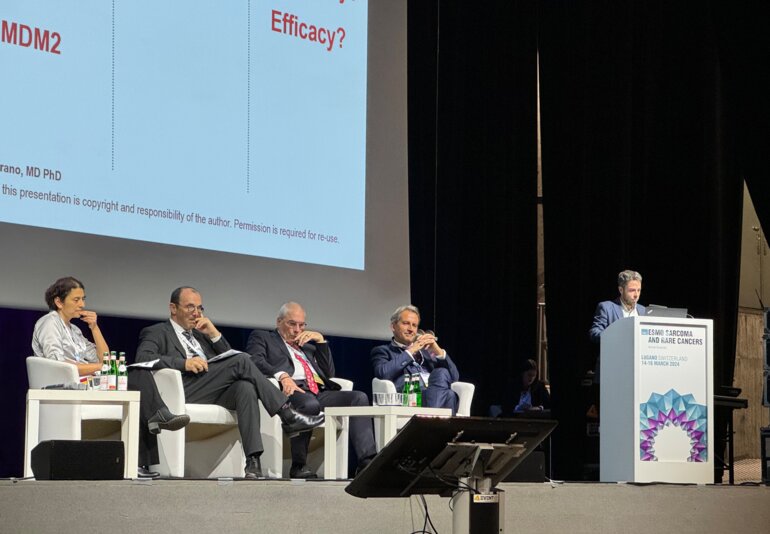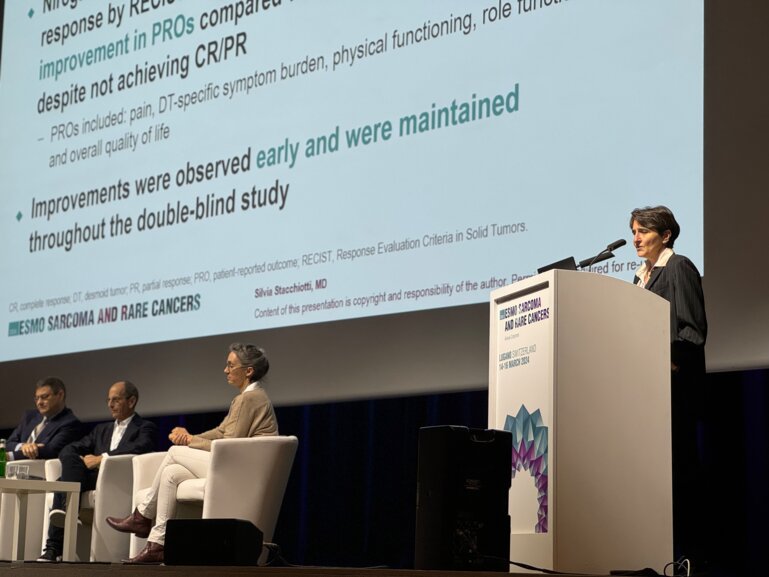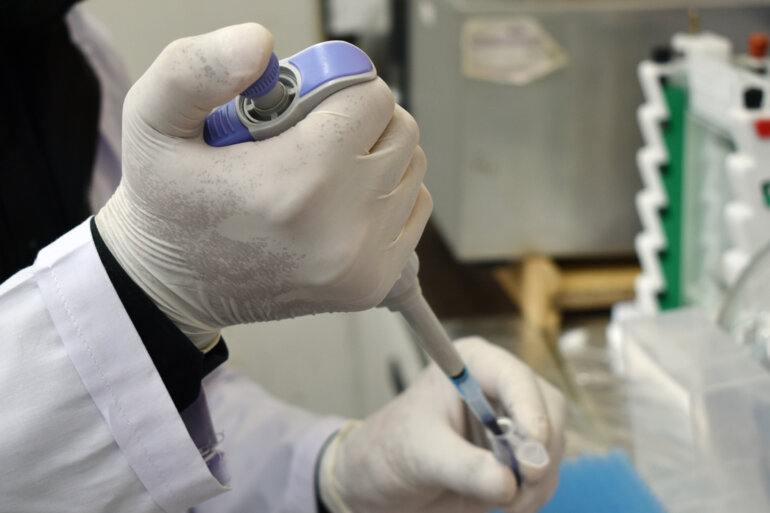
Can sarcomas benefit from targeted treatments active in other tumour types?
Two studies in sarcoma explore the promise of ADCs and theranostics realised in different tumours.

New hope for MDM2 inhibition in liposarcomas?
An early-phase trial shows the efficacy of brigimadlin in dedifferentiated and well-differentiated liposarcomas, but confirmation from phase III results is still awaited

Desmoid tumours: nirogacestat improves quality of life also in stable disease
In a post hoc analysis of the DeFi trial, a reduction in symptom burden was reported, with benefits occurring early in treated patients

Should rare cancers still be (in) a niche of oncology?
ESMO is sustaining its efforts to give rare cancers a more prominent place in oncology

Studies provide further evidence to support continued imatinib in two different GIST indications
Uninterrupted imatinib is essential to optimise outcomes in metastatic and high-risk resected GIST

BRCA mutations are associated with worse treatment outcomes in mCRPC
In patients with metastatic castration-resistant prostate cancer, early genetic testing may help personalise treatments in the first-line as a study suggests

A multimodal liquid biopsy analysis shows promise in monitoring response to immunotherapy
A study shows that early kinetics in DNA methylation and fragment quantity in plasma can predict response to pembrolizumab in patients with advanced solid tumours

Most women report poor sexual health after a diagnosis of breast cancer
However, patients’ sexual concerns are often unaddressed in oncology, a study suggests

Can ctDNA predict outcomes in early phase trials?
Baseline and on-treatment changes in ctDNA may provide an early indication of response to experimental therapies

How to predict long-term survival to assess eligibility for phase I trials?
Studies investigate the discriminatory capacity of existing prognostic scales and the factors associated with survival to help select patients who may benefit from participation in early phase trials
